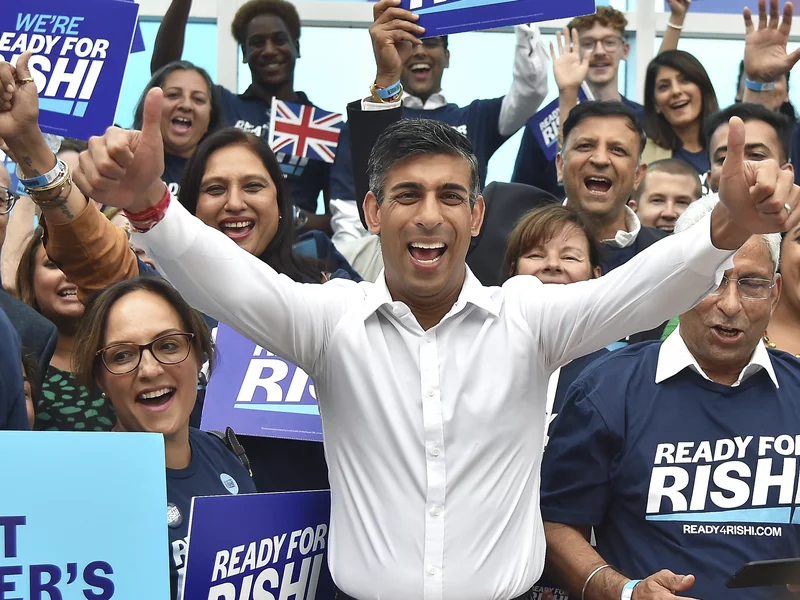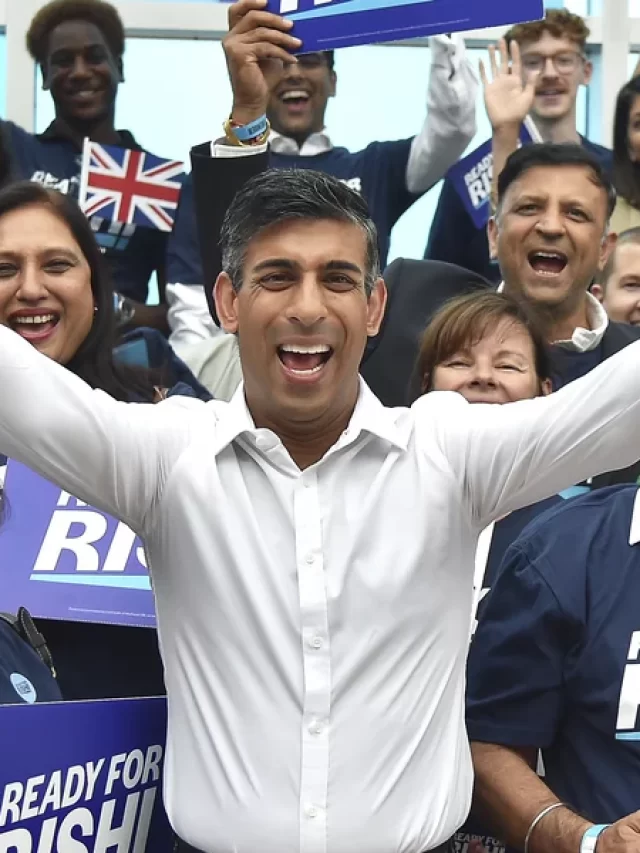On Monday, Rishi Sunak was stated the next leader of Britain’s Conservative Party by the head of the 1922 Committee of Conservative lawmakers, positioning him on course to be the country’s next prime minister.
Rishi Sunak becoming Britain’s prime minister is a “Barak Obama moment” for people of Indian descent in the UK.

rishi sunak the next pm of UK
Though a centrist and practical politician, he appeared in the most delinquent leadership contest as a safe pair of hands to direct the U.K. after Liz Truss’ policy recommendations around tax cuts and spending surprised the government’s credibility and shocked markets.
Sunak’s rise in British politics has been nothing short of meteoric. After entering Parliament in 2015 after a career in banking, Boris Johnson appointed him just five years later as finance minister — a role formally known as chancellor of the Exchequer, the U.K.’s Treasury.
Sunak will be the first British Asian to become prime minister and the first nonwhite to take the top job. At 42, he’ll also be the youngest prime minister in more than 200 years. But such a senior political leader in Britain has a family background that is nonwhite — with both his parents of Indian origin — has only become commonplace in the past handful of years.
Truss announced her resignation last week. Truss’s short term of just over six weeks was marked by surprise over the government’s mini-budget, which disturbed British markets, and internal party controversy leading to cabinet departures and backbenchers sounding a lack of confidence in Truss.
Sunak, in a short speech, mentioned the “profound economic challenge” the country faces, which includes soaring energy and food prices and a looming recession.
“We now need stability and unity, and I will make it my utmost priority to bring our party and our country together,” he said.
Bronwen Maddox, the chief executive of the London-based think tank Chatham House, says that one silver lining amid all the chaos of recent weeks is that it “has forced someone with economic competence to the top of the Conservative field, and it has also forced Labour, the main opposition party, to put together a platform based on a claim to financial coherence, competence, things that Labor hasn’t always been associated with in the past.”




